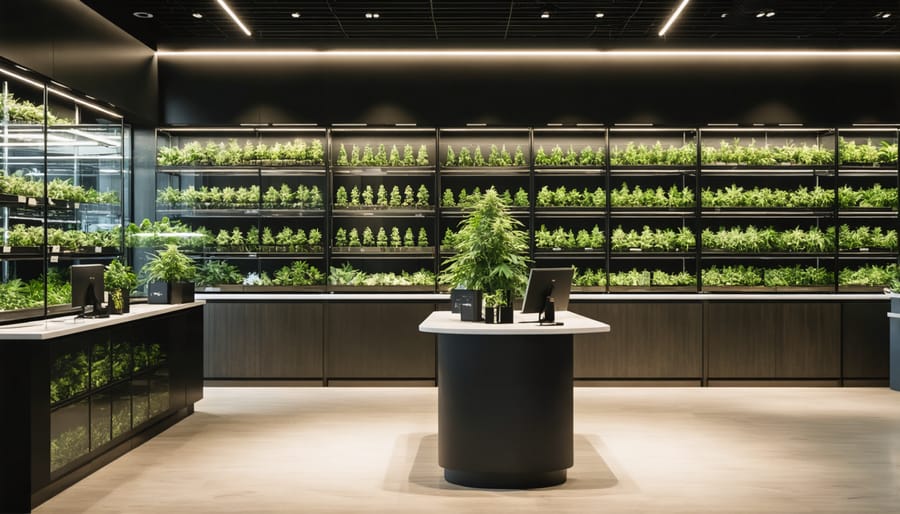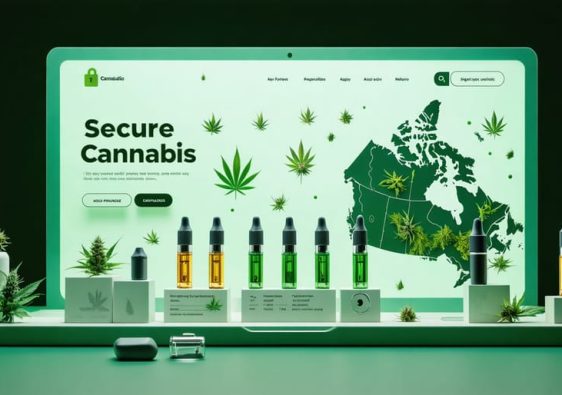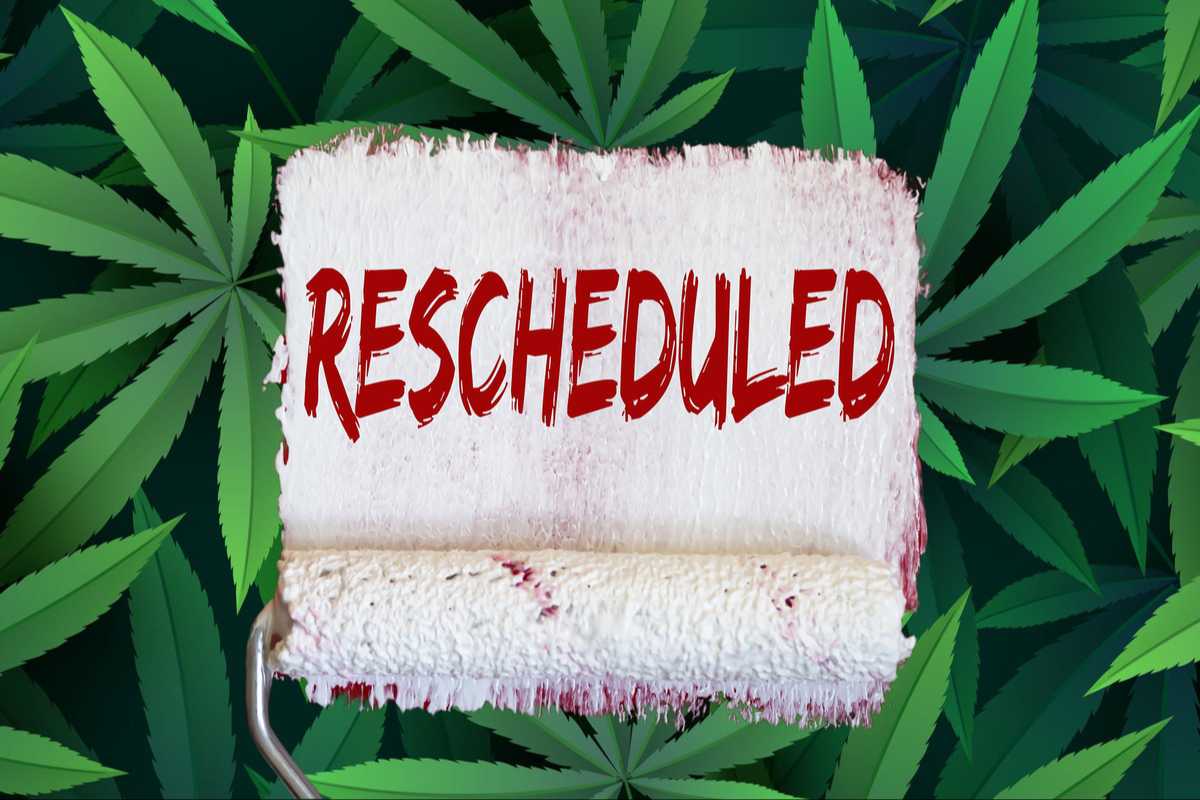Canada’s cannabis retail landscape demands rigorous adherence to evolving industry standards, with over 3,000 cannabis retail stores in Canada navigating complex regulatory frameworks. From precise inventory management systems tracking Bud Pop Live resin and other products, to stringent security protocols, these standards shape the foundation of legal cannabis commerce.
Recent regulatory changes have transformed retail operations, requiring sophisticated age verification systems, comprehensive staff training programs, and meticulous record-keeping practices. Federal and provincial authorities maintain strict oversight of retail operations, enforcing compliance through regular audits and inspections to ensure public safety and product integrity.
For cannabis retailers, understanding and implementing these standards isn’t merely about regulatory compliance—it’s essential for building consumer trust and establishing long-term business sustainability. The industry’s rapid evolution demands retailers stay current with emerging technologies, updated security protocols, and enhanced quality control measures while maintaining operational excellence in an increasingly competitive market.
These standards continue to evolve, reflecting both government priorities and industry best practices, making ongoing education and adaptation crucial for success in Canada’s regulated cannabis retail sector.
Core Compliance Requirements for Canadian Cannabis Retailers

Federal and Provincial Licensing Standards
The Canadian cannabis retail licensing framework operates on two distinct levels: federal and provincial/territorial. At the federal level, Health Canada oversees the foundational requirements, including security clearances for key personnel, quality assurance standards, and cannabis retail insurance requirements. These baseline standards ensure consistent safety and security measures across the country.
Provincial and territorial authorities maintain their own specific licensing requirements, creating a varied landscape of compliance standards. For example, Ontario requires retailers to complete the CannSell certification program, while Alberta mandates the SellSafe training. British Columbia operates under the Liquor and Cannabis Regulation Branch (LCRB), implementing unique requirements for retail store operations and staff certification.
Common elements across jurisdictions include criminal background checks, detailed business plans, and strict location requirements regarding proximity to schools and other sensitive areas. Most provinces also require regular compliance audits, security system installations, and inventory tracking protocols.
Municipalities may impose additional zoning restrictions and business licensing requirements, creating a third tier of compliance considerations. Prospective retailers must navigate this complex regulatory environment while maintaining compliance at all levels. Annual license renewals typically require proof of ongoing adherence to these standards, along with updated documentation and fee payments.
Product Quality and Safety Protocols
Product quality and safety protocols form the cornerstone of successful operations in cannabis retail facilities. These protocols encompass rigorous standards for product handling, storage, and quality assurance to ensure consumer safety and regulatory compliance.
All cannabis products must be stored in temperature-controlled environments, typically between 15-21°C, with relative humidity levels maintained between 59-63%. Products require secure, light-resistant packaging and must be kept in designated storage areas accessible only to authorized personnel.
Quality assurance measures include regular inventory audits, thorough documentation of product receiving procedures, and strict protocols for identifying and managing recalled products. Retailers must implement track-and-trace systems to monitor product movement from receipt to sale, ensuring complete supply chain transparency.
Storage areas require constant monitoring with calibrated environmental control systems. Staff must conduct daily checks of storage conditions and maintain detailed logs. Products showing signs of degradation, damage, or tampering must be immediately quarantined and properly documented.
Product handling protocols mandate that staff wear appropriate personal protective equipment when necessary and follow proper sanitation procedures. Regular training sessions ensure all employees understand and comply with these protocols, while documentation systems track adherence to established standards and facilitate quick responses to any quality-related incidents.
Operational Excellence in Cannabis Retail
Staff Training and Certification Requirements
In Canada’s regulated cannabis retail environment, staff training and certification requirements are fundamental to maintaining industry standards and ensuring public safety. All employees working in cannabis retail must complete mandatory training programs prescribed by their respective provincial authorities. These programs typically cover essential topics including cannabis knowledge, responsible sale practices, compliance regulations, and security protocols.
Provincial requirements vary, but most jurisdictions mandate that retail staff obtain and maintain valid CannSell certification or its equivalent before working in cannabis stores. This certification ensures employees understand their legal obligations and can effectively prevent sales to minors or intoxicated individuals. Regular recertification, usually every 2-4 years, helps staff stay current with evolving regulations and best practices.
Beyond mandatory certifications, many retailers invest in additional training to enhance customer service and product knowledge. This supplemental education often includes detailed information about different cannabis strains, consumption methods, and how to effectively manage customer loyalty programs. Some provinces also require specific security clearances or background checks for retail staff.
Ongoing education is particularly important as the industry evolves. Staff must stay informed about new products, changing regulations, and emerging research. Many retailers implement internal training programs focusing on standard operating procedures, inventory management, and conflict resolution. These programs help ensure consistent service quality while maintaining compliance with federal and provincial regulations.
Employers must maintain detailed records of all staff certifications and training completions, as these may be subject to review during regulatory inspections. This documentation demonstrates compliance and commitment to professional standards in cannabis retail operations.

Security and Age Verification Protocols
Security and age verification protocols form the cornerstone of compliant cannabis retail operations in Canada. All licensed retailers must implement a comprehensive two-step age verification process, requiring valid government-issued identification for both store entry and purchase completion. Staff must verify that customers are of legal age (18 or 19, depending on the province) and that identification documents are authentic and current.
Physical security measures are mandatory and include surveillance systems with 24/7 video recording capabilities, covering all entrances, exits, point-of-sale areas, and storage facilities. Footage must be retained for a minimum of 30 days and be readily available for regulatory inspection. Access control systems must restrict entry to authorized personnel in sensitive areas such as storage rooms and loading bays.
Inventory security protocols require strict tracking of all cannabis products from receipt to sale, with detailed documentation of any discrepancies or losses. Secure storage facilities must feature commercial-grade locks, reinforced doors, and monitored alarm systems connected to local law enforcement or licensed security services.
Staff training is essential, with employees required to complete security awareness programs covering threat assessment, robbery prevention, and emergency response procedures. Regular security audits and updates to protocols ensure continued compliance with evolving regulations and industry best practices.
Digital age verification systems are increasingly being adopted, offering additional layers of security through ID scanning technology and maintaining detailed verification records. These systems help prevent fraudulent identification while streamlining the verification process and maintaining customer privacy standards.
Technology and Record-Keeping Standards
Inventory Tracking Systems
In Canada, maintaining a robust inventory tracking system is a critical requirement for all licensed cannabis retailers. The Cannabis Act mandates comprehensive seed-to-sale tracking to ensure product traceability and prevent diversion into illegal markets. Retailers must implement systems that monitor and record all cannabis products from the moment they enter the store until their final sale to consumers.
These tracking systems must record detailed information including product quantities, lot numbers, purchase dates, and sale dates. Retailers are required to maintain accurate records of their daily inventory counts, reconciliations, and any discrepancies identified. Health Canada requires these records to be retained for a minimum of two years and be readily available for inspection.
Most retailers utilize specialized cannabis retail point-of-sale (POS) systems that integrate inventory management with compliance reporting. These systems automatically update inventory levels with each sale and can generate required reports for provincial regulators and Health Canada. Real-time inventory tracking helps prevent overselling and ensures compliance with provincial purchase limits.
Standard operating procedures must include regular inventory audits, with any significant discrepancies reported to authorities within 10 days. Staff training in inventory management is essential, as accurate record-keeping directly impacts compliance status. Proper inventory tracking also helps retailers optimize their ordering processes, manage product freshness, and maintain appropriate stock levels to meet customer demand while adhering to storage limits.

Data Protection and Privacy Standards
Data protection and privacy standards in Canada’s cannabis retail industry are governed by both federal and provincial legislation, including the Personal Information Protection and Electronic Documents Act (PIPEDA) and provincial privacy laws. Cannabis retailers must implement robust systems to protect customer data while maintaining compliance with age verification requirements.
Key requirements include secure storage of customer identification data, implementation of privacy-focused point-of-sale systems, and strict protocols for handling personal information. Retailers must obtain explicit consent for collecting customer data and clearly communicate how this information will be used and protected.
Digital security measures are essential, including encrypted databases, secure payment processing systems, and regular security audits. Staff must be trained in privacy protocols and sign confidentiality agreements. Physical documentation containing customer information must be stored in secure locations with restricted access.
Cannabis retailers should develop comprehensive privacy policies that outline data collection practices, storage methods, and customer rights regarding their personal information. These policies must address both in-store and online retail operations, including e-commerce platforms and delivery services.
Regular updates to security systems and privacy protocols are necessary to address emerging threats and maintain compliance with evolving regulations. Retailers must also have incident response plans for potential data breaches and maintain detailed records of all privacy-related procedures and training.
Future of Cannabis Retail Standards
The Canadian cannabis retail landscape is poised for significant evolution in the coming years, with several key trends shaping future industry standards. Digital integration is expected to become increasingly prominent, with retailers implementing sophisticated inventory management systems and enhanced point-of-sale technologies to improve operational efficiency and compliance tracking.
Environmental sustainability is emerging as a crucial focus area, with industry stakeholders developing new standards for packaging reduction and sustainable practices. Retailers are likely to face stricter requirements for eco-friendly packaging solutions and waste management protocols, reflecting growing consumer demand for environmentally responsible business practices.
Product education standards are anticipated to become more rigorous, with an increased emphasis on staff training and consumer education. This includes the development of standardized training programs for retail staff and the implementation of more comprehensive product information systems for consumers.
The integration of e-commerce and delivery services is expected to lead to new operational standards, particularly regarding age verification, order fulfillment, and delivery protocols. These developments will likely necessitate updated security measures and customer service standards to ensure safe and compliant transactions.
Quality assurance standards are projected to evolve, with more sophisticated testing and verification protocols for product authenticity and safety. This may include the implementation of blockchain technology for supply chain tracking and the establishment of more stringent product handling guidelines.
Labor standards within the industry are expected to become more structured, with formal career development pathways and professional certifications becoming industry norms. This professionalization of the workforce will likely lead to standardized wage scales and benefits packages, making cannabis retail a more attractive long-term career option.
As the market matures, industry consolidation may drive the development of chain-specific standards that exceed regulatory minimums, creating differentiation through enhanced quality and service metrics. This evolution will likely include more sophisticated inventory management requirements and customer service protocols.
The future regulatory landscape is expected to become more nuanced, potentially requiring retailers to adapt to regional variations in standards while maintaining consistency in core operational practices. This may include updated security protocols, enhanced record-keeping requirements, and more detailed compliance reporting systems.
The Canadian cannabis retail industry has established itself as a global leader in implementing comprehensive standards that prioritize safety, quality, and consumer protection. Throughout this examination of industry standards, we’ve seen how regulatory compliance, operational excellence, and professional development form the cornerstone of successful cannabis retail operations across the country.
The implementation of strict security protocols, inventory management systems, and age verification procedures demonstrates the industry’s commitment to responsible retail practices. These measures, combined with thorough staff training requirements and product knowledge standards, ensure that Canadian cannabis retailers maintain the highest levels of professionalism and customer service.
As the industry continues to evolve, maintaining and updating these standards remains crucial for sustainable growth and public trust. Retailers who embrace these standards not only ensure legal compliance but also position themselves as responsible business operators in a competitive market. The emphasis on continuous education, transparent operations, and customer safety has created numerous employment opportunities while fostering a legitimate and respected retail sector.
Looking ahead, the dedication to upholding these rigorous standards will be essential in addressing emerging challenges and opportunities. By maintaining this commitment to excellence, the Canadian cannabis retail industry will continue to set benchmarks for other jurisdictions while providing safe, legal access to cannabis products for adult consumers.




